News
-
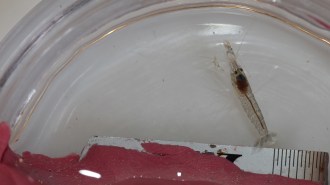 Animals
AnimalsThe fastest claw in the sea belongs to young snapping shrimp
When juveniles snap their claws shut to create imploding bubbles, they create the fastest accelerating underwater movements of any reusable body part.
By Jake Buehler -
 Climate
ClimateAn incendiary form of lightning may surge under climate change
Relatively long-lived lightning strikes are the most likely to spark wildfires and may become more common as the climate warms.
By Nikk Ogasa -
 Health & Medicine
Health & MedicineMedicated eye drops may delay nearsightedness in children
Myopia, or nearsightedness, is a growing global health threat. But a Hong Kong study found that medicated eye drops may delay its onset in children.
-
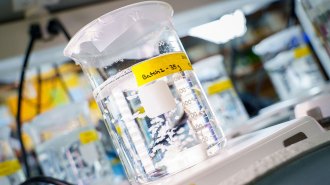 Humans
HumansA new biomaterial heals heart attack damage in animals. Humans could be next
If used right after a heart attack, this intravenously delivered biomaterial can preserve cardiac function. It could also treat traumatic brain injury.
-
 Health & Medicine
Health & MedicineA gel cocktail uses the body’s sugars to ‘grow’ electrodes in living fish
A chemical reaction with the body’s own sugars turned a gel cocktail into a conducting material inside zebrafish brains, hearts and tail fins.
By Simon Makin -
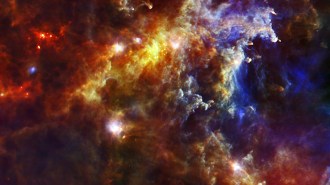 Astronomy
AstronomyThe Milky Way may be spawning many more stars than astronomers had thought
Glowing radioactive debris from massive stars indicates our galaxy mints 10 to 20 new stars a year — double to quadruple the standard number.
By Ken Croswell -
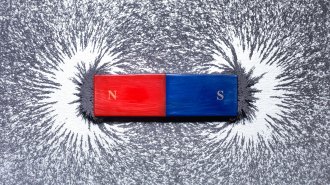 Physics
PhysicsThe standard model of particle physics passed one of its strictest tests yet
An experiment with a single electron, trapped for months on end, produced one of the most precise tests yet of the standard model of particle physics.
-
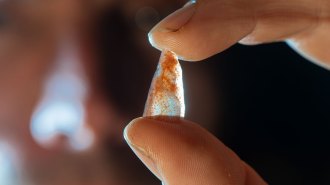 Archaeology
ArchaeologyHomo sapiens may have brought archery to Europe about 54,000 years ago
Small stone points found in a French rock-shelter could have felled prey only as tips of arrows shot from bows, scientists say.
By Bruce Bower -
 Quantum Physics
Quantum PhysicsGoogle’s quantum computer reached an error-correcting milestone
A larger array of quantum bits outperformed a smaller one in tests performed by Google researchers, suggesting quantum computers could be scaled up.
-
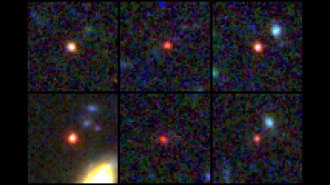 Astronomy
AstronomyThe James Webb telescope found six galaxies that may be too hefty for their age
The galaxies formed in the universe’s first 700 million years and may be up to 100 times more massive than predicted.
-
 Life
LifeChemical signals from fungi tell bark beetles which trees to infest
As fungi break down defensive chemicals in trees, some byproducts act as signals to bark beetle pests, telling them which trees are most vulnerable.
By Freda Kreier -
 Science & Society
Science & SocietyLots of people feel burned out. But what is burnout exactly?
Researchers disagree on how to define burnout, or if the phenomenon is really another name for depression. Helping people cope at work still matters.
By Sujata Gupta